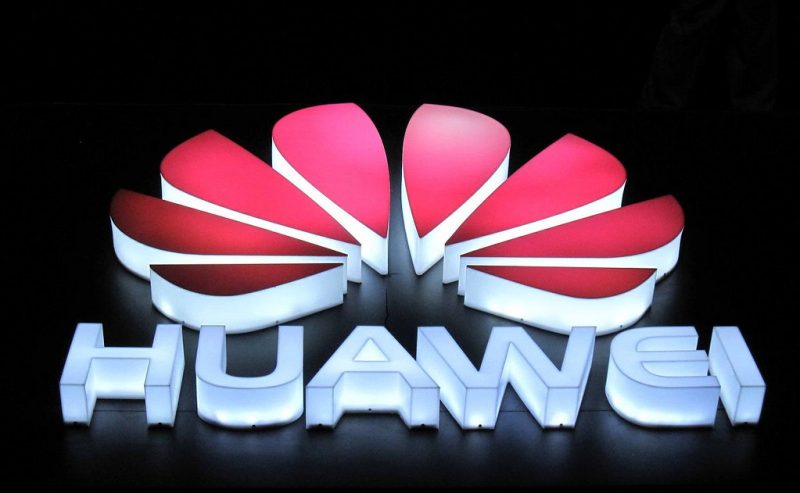 POLICY
POLICY
 POLICY
POLICY
 POLICY
POLICY
White House officials have moved to clarify U.S. President Donald Trump’s decision to relax a ban on American companies doing business with Huawei Technologies Co. Ltd.
Reuters reported today that the sanctions reprieve will only apply to products that are “widely available” and not the most sensitive equipment.
Trump handed Huawei a lifeline Saturday following a meeting with his Chinese counterpart, Xi Jinping, at the Group of 20 summit in Osaka, Japan. During the meeting, Trump not only agreed to restart stalled trade negotiations with China, but also to delay imposing new tariffs on $300 billion in Chinese goods in exchange for China “buying large amounts of American farm products.”
In addition, the President said U.S. firms would be allowed to continue selling their products to Huawei. “We’re talking about equipment where there’s no great national security problem with it,” he said.
Huawei was left reeling by the sanctions after being placed last month on the U.S. Commerce Department’s list of banned entities, which prevents American companies from doing business with it unless they obtain a special license. White House officials justified the ban by saying Huawei poses a significant national security risk amid claims that its equipment could be used to spy on American communications.
The decision meant that U.S. chipmakers such as Intel Corp. and Micron Technology Inc. were barred from selling Huawei essential components needed for its smartphones and other hardware devices, though those companies did find some loopholes to partially get around the ban. It also meant Google LLC would no longer be able to provide it with updates for its Android operating system.
Trump said Saturday Huawei isn’t being taken off the banned entity list just yet, though.
“I don’t want to talk about it now, we’re looking at that very carefully,” he said. “Huawei is very much in play in terms of our country and in terms of intelligence and the intelligence community — we know a lot about Huawei — but I don’t want to mention that right now. I just think it’s inappropriate. We’re not making it other than what I told you.… We’re going to save that for later.”
Instead, what will happen is that some U.S. firms will be granted licenses to continue selling to Huawei, a White House aide told Reuters today.
“All that is going to happen is Commerce will grant some additional licenses where there is a general availability” of certain components, said National Economic Council Chairman Larry Kudlow. “This is not a general amnesty… The national security concerns will remain paramount.”
Trump’s move suggests that Huawei is actually little more than just a pawn in the wider trade negotiations between the U.S. and China, said Holger Mueller, principal analyst and vice president of Constellation Research Inc.
“This might be good news for some U.S. suppliers and Huawei, but it still means uncertainty in the medium run for the supply chain,” Mueller said. “Even though we are in the 21st century, supply chains and supplier contracts are not agile enough to keep up with the negotiation speed of trade wars.”
Technology industry analyst Charles King of Pund-IT Inc. told SiliconANGLE that he too believes Huawei is really just a pawn in the trade imbroglio between Washington and Beijing, and that he wasn’t surprised by Trump’s reprieve.
“The unspoken issue is the way that Trump’s hardline trade stance has impacted U.S. tech firms, many of which either leverage Chinese companies as manufacturing partners or regard China as a critically important market for their wares,” King said.
Still, King noted that the situation could change again at any time, since the licensing scheme, while appearing fairly benign, is rhetorically loose enough that the government could play hardball again should the need arise.
“Many investors are likely to optimistically see the Huawei deal as a ‘full steam ahead’ signal, resulting in a significant upward bump in market activity come Monday,” King added. “That’s of critical importance for a U.S. administration that is focusing on financial good news as a core component of the president’s reelection strategy.”
However, Patrick Moorhead of Moor Insights & Strategy warned that investors could get a shock if the forthcoming negotiations don’t go Trump’s way. “I believe this is just a short-term gesture by the U.S. administration to show that it can give a little,” he said. “If President Trump doesn’t get what he wants, which is equality, I wouldn’t be surprised if the full ban goes into effect again.”
Moorhead could well be right. Kudlow said the security concerns over Huawei’s equipment would definitely be part of the renewed trade negotiations with China, adding that the agreement reached this weekend is “not the last word” on the matter.
Support our mission to keep content open and free by engaging with theCUBE community. Join theCUBE’s Alumni Trust Network, where technology leaders connect, share intelligence and create opportunities.
Founded by tech visionaries John Furrier and Dave Vellante, SiliconANGLE Media has built a dynamic ecosystem of industry-leading digital media brands that reach 15+ million elite tech professionals. Our new proprietary theCUBE AI Video Cloud is breaking ground in audience interaction, leveraging theCUBEai.com neural network to help technology companies make data-driven decisions and stay at the forefront of industry conversations.